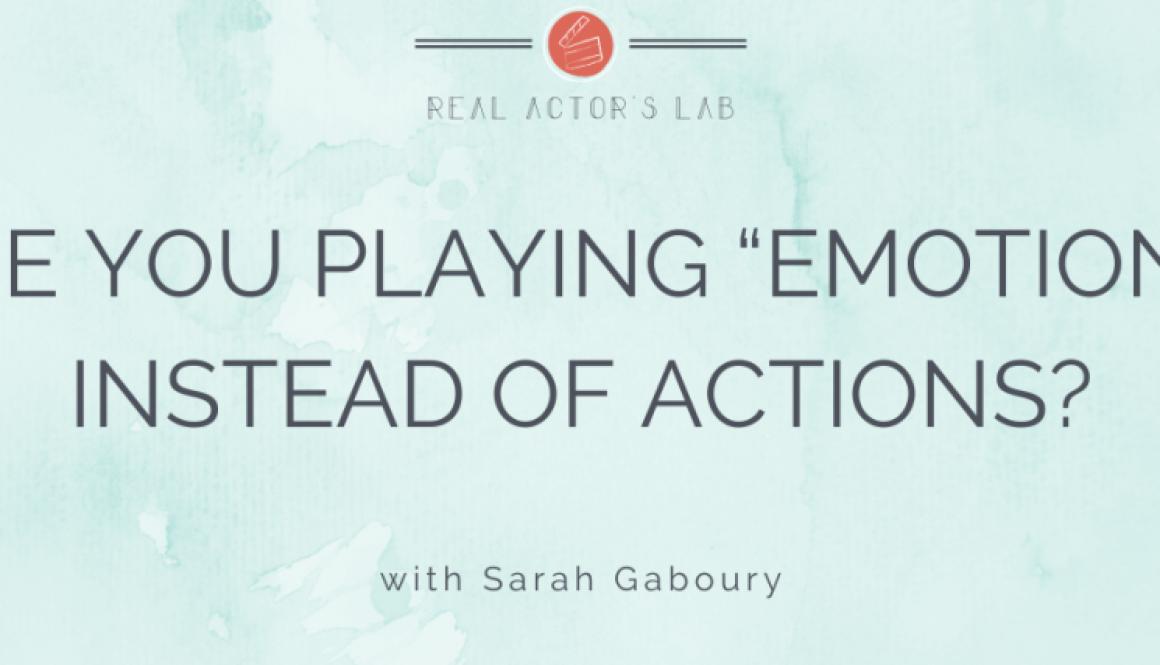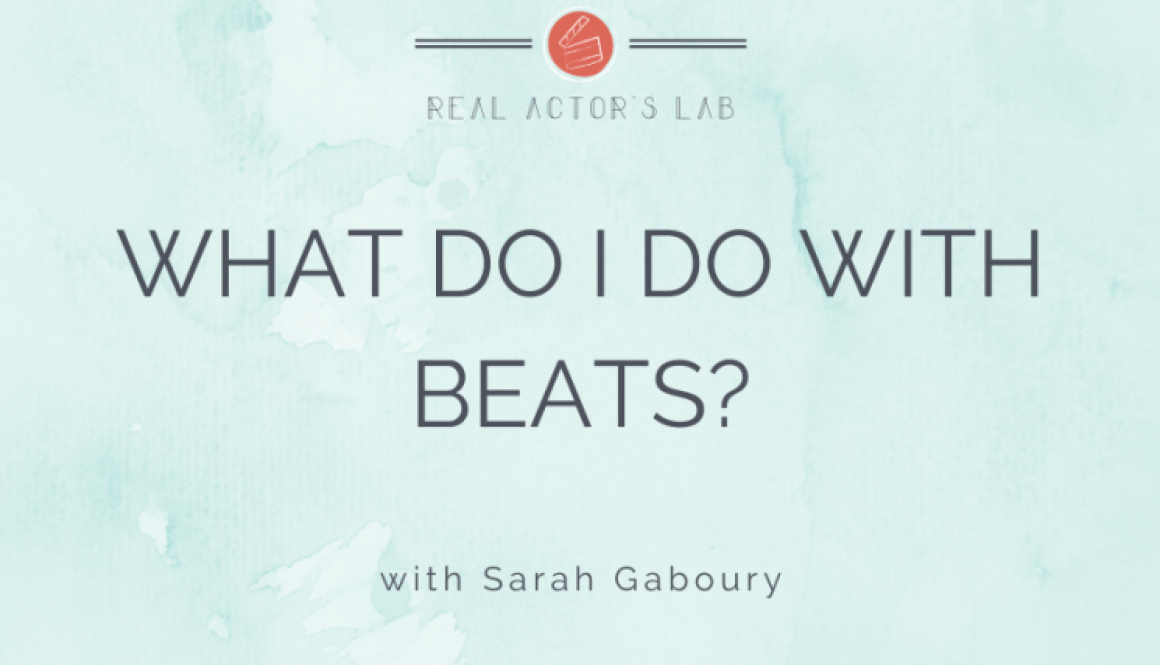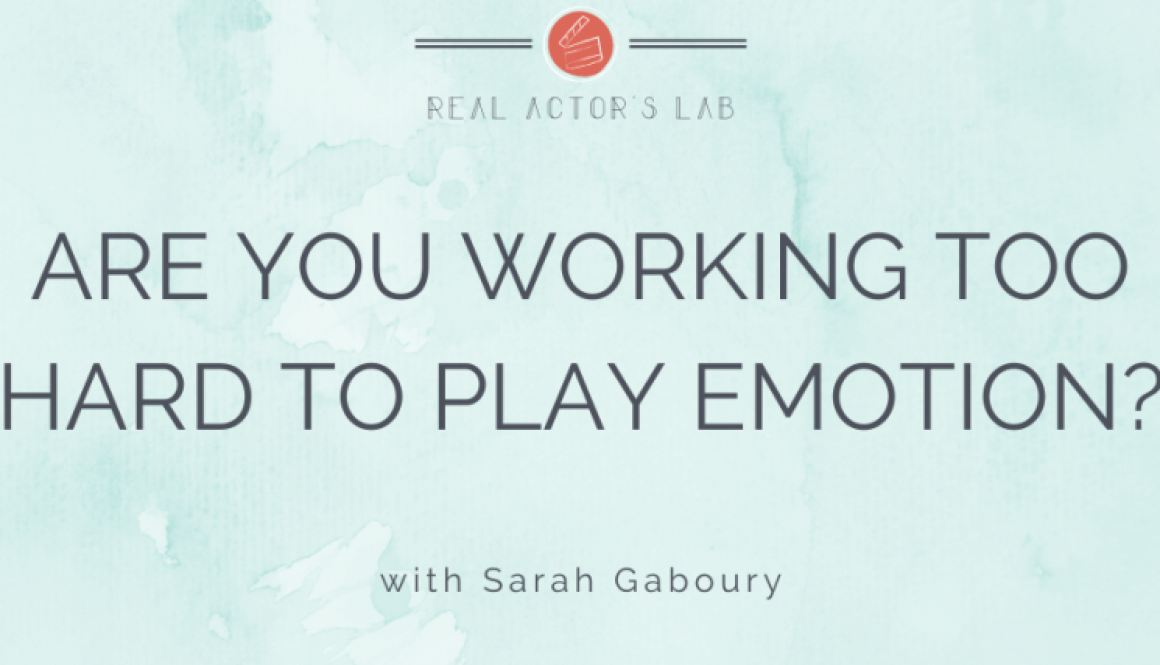Playing emotions and moods in acting
Do you ever find that you’re playing the emotion or mood of a scene and catch yourself acting up a storm? That’s because, as counter intuitive as it may seem, actors shouldn’t focus on emotion.
Perhaps you’re working a scene and subconsciously imagining the result – or maybe you even try it out in the mirror.
Well, you think, my character is pretty angry here, the text is in ALL CAPS so I should look and sound angry when I deliver this. Maybe my face should scrunch up and my eyebrows should furrow. I’ll definitely YELL!
This is the big trap I literally lead actors out of every day: trying to play mood. (Which as my teacher Larry Moss used to say, mood spelled backwards is DOOM.)
What should you do instead?
Leave the mood and all description words of your performance to the audience. It’s their job to process and interpret your work and how they’ll experience the story.
But for you, playing a mood isn’t active. You aren’t trying to get anything from them when you play emotion — and trying to get something is what we do in life. Right? In fact, we are usually trying not to feel emotion.
Try focusing on what your character is doing to the other person for a desired response. Look for transitive verbs.
Maybe you are shaming the other character or chastising them, or smacking them. Those juicy actions will help you stay in a powerful feedback loop of action, curiosity and attention. Those actions will free you and ground you and give you beautiful specificity.
The experience of watching an actor play emotion is confusing, acty and generally a snoozefest.
CLASS CLIP TRANSCRIPTION
Student: I guess I need to portray this better, but I was trying to act—not act, but I was being almost like disgusted, like she’s inferior to me because she lets guys feel her up, and so I need to figure out like an action word for that.
Sarah: Yes! An action word! Cuz if you play disgusted, it’ll look like you’re acting, because you’re giving us, you’re giving us what you want the audience to experience. The audience experiences disgust.
Student: Maybe like…what’s another word for talk down to? Belittle?
Sarah: Belittle, good. Let’s look up belittle. We’ve got “cheapen,” “demean,” “discredit,” “humiliate” is really good, “patronize,” “knock.”
Student: I think humiliate is good.
Sarah: Feels really right on there, yeah. Let’s just back it up. Let’s actually try humiliate.
Student: “Why would you do it? I don’t know why you’d do it. But I know why they’d do it. So they can feel you or something. And you let them.”
Sarah: Yes, that’s so much more on her! It’s so much better! That’s a totally different moment now. Cuz you were trying to affect her. But it’s so good, what you discovered in that moment was a huge learning moment, which is like, good, maybe I want her to feel, I want her to feel…what?
Student: Humiliated.
Sarah: Yeah, humiliated, so you can get behind that.



